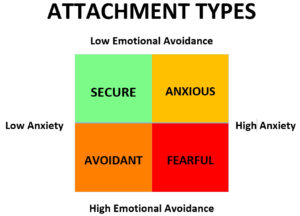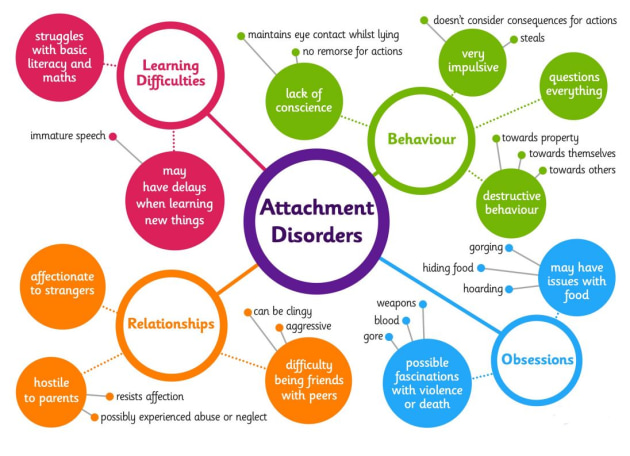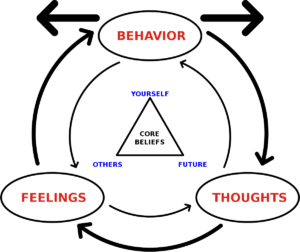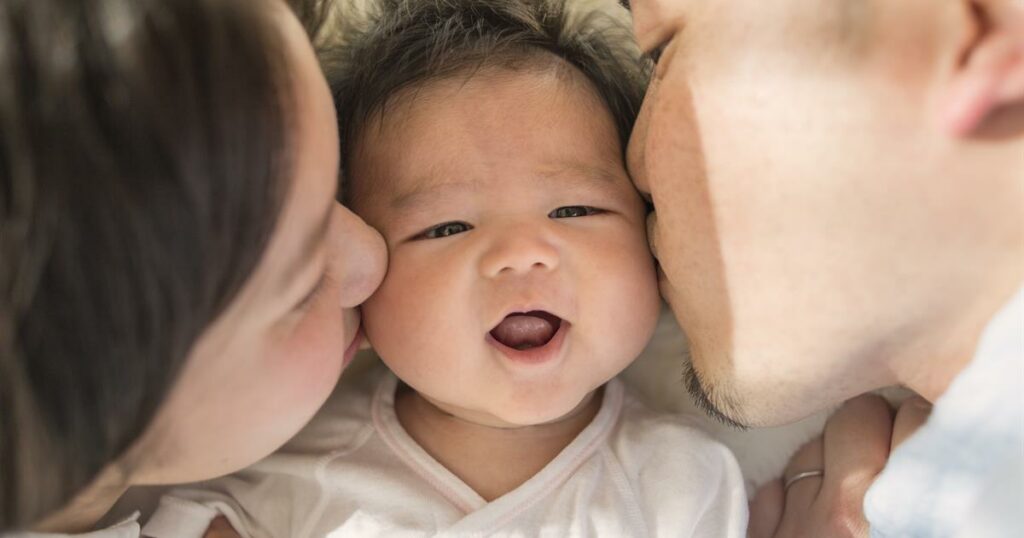Contents
- 1 What are Attachment Issues?
- 1.1 Types Of Attachment Issues
- 1.2 Causes of Attachment Issues
- 1.3 Symptoms of Attachment Issues
- 1.4 Attachment Issues Among Kids
- 1.5 Attachment Issues In Relationships
- 1.6 Attachment Issues In Parenting
- 1.7 Attachment Issues In Friendship
- 1.8 How to Address Attachment Issues?
- 1.9 Therapy Options
- 1.10 Self-Help Tips
- 1.11 Risk Factors Associated With Attachment Issues
- 1.12 How To Prevent Attachment Issues?
- 1.13 How To Help Someone Having Such Issues
- 2 Conclusion
What are Attachment Issues?

As an adult, you might have been adopted as a child or may be separated from your parents at any age. In either case, attachment issues can affect the quality of your relationships and how much satisfaction you derive from them. The first step is to understand what they are and why we develop these patterns in our life.
Attachment issues arise when we have difficulty developing and maintaining close relationships. People with attachment issues often feel insecure and fear abandonment. They may also be overly dependent on their partners or excessively needy. As a result, they can become easily frustrated and angry when things don’t go their way.
Types Of Attachment Issues

There are three primary types:
- Avoidant Attachment Disorder: People with this disorder often feel uncomfortable getting close to others and tend to avoid intimacy. They may view themselves as independent and self-sufficient, and see relationships as a source of stress or inconvenience.
- Anxious Attachment Disorder: People with this disorder tend to have a very high degree of dependency on their partners. They may doubt that other people can be relied upon and constantly seek reassurance from others.
- Ambivalent Attachment Disorder: People with this disorder often feel helpless when faced with rejection or abandonment by their loved ones, because they don’t know how to express their feelings appropriately. This can lead to a lot of anger and resentment.
Causes of Attachment Issues
There are many possible causes of attachment issues.
- One common cause is a lack of love and nurturing in early childhood. If we don’t receive the care and attention we need during our formative years, we may be less likely to trust others and more likely to feel insecure in relationships.
- Traumatic events can also lead to attachment issues. If we experience physical, emotional, or sexual abuse during childhood, for example, we might develop a deep fear of abandonment and struggle to connect with others.
Symptoms of Attachment Issues

There are many visible signs that someone has attachment issues.
- If you have an insecure attachment style, there’s a good chance you’ll feel lonely very often and avoid intimacy.
- People with severe issues may be afraid of getting too close to their partners or feel that they don’t deserve love.
- They may also have a history of failed relationships and be unable to maintain healthy attachments.
- Finally, people with attachment issues often struggle to trust their partners and worry they’ll be betrayed or abandoned.
Attachment Issues Among Kids
Some children develop attachment issues as a result of neglect or trauma. Others may be born with an insecure style, which can lead to trouble forming healthy relationships later in life.
When we’re still very young, our main caregivers help us learn how to trust other people and form close bonds that last for the rest of our lives.
If we’re neglected or mistreated, though, it’s hard for us to feel safe and secure. This can cause a lot of emotional pain and anxiety as we grow older.
Attachment Issues In Relationships
If you have attachment issues, there are several steps you can take in your relationship.
First of all, it’s important that both partners feel comfortable being vulnerable and exposing their true selves without fear of judgment or rejection. If one partner keeps his feelings bottled up while the other constantly talk about theirs, this isn’t going to work.
It’s also important to feel safe and secure in a relationship. If you have attachment issues, it’s a good idea to share your feelings with your partner while offering reassurance that everything is going to be okay.
Finally, if you’re feeling insecure or anxious about the status of your relationship, talk about it openly instead of keeping your feelings to yourself.
Attachment Issues In Parenting

It’s important to be a good parent. Parents with attachment issues often have children who develop the same problems when they grow up.
This is especially true if parents don’t know how to show love and affection or are overly controlling. In these cases, their kids may feel insecure about being loved and learn that relationships cause pain instead of pleasure.
If you have attachment issues, it’s important to get help from a therapist or counselor who can guide you through the healing process. With time and effort, you can learn how to form healthy attachments with your children and create a more stable home environment for them.
Attachment Issues In Friendship

People with attachment issues often have difficulty making and maintaining friendships.
They may be shy or introverted and have a hard time opening up to others. They may also avoid social gatherings altogether, preferring to stay at home instead.
If you have attachment issues, it’s important to seek out social activities that interest you and make an effort to connect with like-minded people.
It’s also a good idea to join support groups and seek out therapy if you feel lonely or isolated in your daily life.
Attachment issues can be challenging, but we can overcome them and form healthy relationships with others! If we share our feelings openly instead of hiding behind a wall of isolation, we can start to heal the wounds that have kept us from trusting others. With time and patience, we can learn to love and be loved in return.
How to Address Attachment Issues?
If you think you might have attachment issues, the best thing to do is get professional help.
- A therapist can help you understand the root cause of your difficulties and develop strategies for overcoming them. You can also work on developing new skills and behaviors that will help you form healthy attachments with others.
- There are also several self-help strategies people can use to address attachment issues on their own:
- Develop a strong support network of friends and family who understand you and offer acceptance without judgment or criticism. If your relationships aren’t healthy, work on building healthier friendships and family relationships.
- Work on forgiving people who’ve hurt you in the past and letting go of any anger or resentment you feel towards them. It’s also important to forgive yourself for your mistakes instead of constantly feeling guilty or ashamed about things that happened in the past.
- Spend more time alone if necessary, but make sure to take time for yourself and do things you enjoy. If necessary, use meditation or relaxation techniques to help calm your mind so you can cope with difficult emotions healthily.
- Finally, learn more about attachment issues by reading books on the topic or watching videos that explain how people develop relationships with others as they grow up. Many of these resources can be found online for free.
Therapy Options

If you have attachment issues, several therapy options may be helpful for you.
- One option is individual therapy, which provides a safe and confidential place for you to explore your feelings and thoughts about relationships.
- Group therapy may also be beneficial, as it allows you to connect with other people who are struggling with similar issues.
- Family therapy can help you understand your family dynamics and how they’ve influenced your attachment style.
- Finally, there are also inpatient programs for people with severe attachment issues that offer a more intensive level of treatment.
No matter what type of therapy you choose, make sure to find a therapist with who you feel comfortable working and who understands your needs.
If you’re not sure where to start, ask your doctor or therapist for a referral to a qualified professional.
Self-Help Tips
There are also several self-help tips people can use to address these issues on their own:
- Develop a strong support network of friends and family who understand you and offer acceptance without judgment or criticism. If your relationships aren’t healthy, work on building healthier friendships and family relationships.
- Work on forgiving people who’ve hurt you in the past and letting go of any anger or resentment you feel towards them. It’s also important to forgive yourself for your mistakes instead of constantly feeling guilty or ashamed about things that happened in the past.
- Spend more time alone if necessary, but make sure to take time for yourself and do things you enjoy. If necessary, use meditation or relaxation techniques to help calm your mind so you can cope with difficult emotions healthily.
- Finally, learn more about attachment issues by reading books on the topic or watching videos that explain how people develop relationships with others as they grow up. Many of these resources can be found online for free.
Risk Factors Associated With Attachment Issues
- People who experienced neglect or abuse during childhood are more likely to have attachment issues.
- People who had parents with unresolved attachment issues are also more likely to develop problems with attachments.
- Individuals who struggle with anxiety or depression are more likely to have attachment issues.
- People who frequently experience traumatic events are also at risk for developing attachment issues.
- People who have been diagnosed with borderline personality disorder are also at risk for developing attachment issues.
- Finally, people from all walks of life can fall victim to these problems so it’s never too late to seek help if you’re having a difficult time in your relationships with friends and family members!
How To Prevent Attachment Issues?

If you want to prevent your children from developing attachment issues, it’s important to create a stable and supportive home environment for them.
This means being there for them when they need you, comforting them when they’re upset, and providing a safe place where they can express their feelings without fear of judgment or punishment.
It’s also a good idea to help them develop healthy relationships with other people. Staying involved in their lives, giving them opportunities for social activities, and encouraging friendships are all ways you can keep your children from developing attachment issues later on.
How To Help Someone Having Such Issues
If you know someone who is struggling with attachment issues, there are ways that you can help them.
- First and foremost, it’s important to be supportive and understanding. Don’t criticize or judge the person for their difficulties and try not to push them into doing things they’re uncomfortable with.
- Second, encourage the person to seek professional help. This is an important step in overcoming attachment issues and can provide the person with the tools they need to start developing healthier relationships.
- Finally, offer your support and friendship whenever possible. Let the person know that you’re there for them and be a shoulder to cry on when needed. Just being there for the person can make a big difference in their lives!
Conclusion
Couples often find themselves in a cycle of hurt and pain, which can lead to the end of their relationship. If you or your partner is experiencing these attachment issues, it’s time to seek help from an experienced counselor. Make sure he knows how to treat trauma and stress disorders. Make sure that you both get counseling for this issue before continuing with your daily life. You owe it to yourself and each other!
If you are looking for affordable Online Counseling MantraCare can help: Book a trial therapy session




